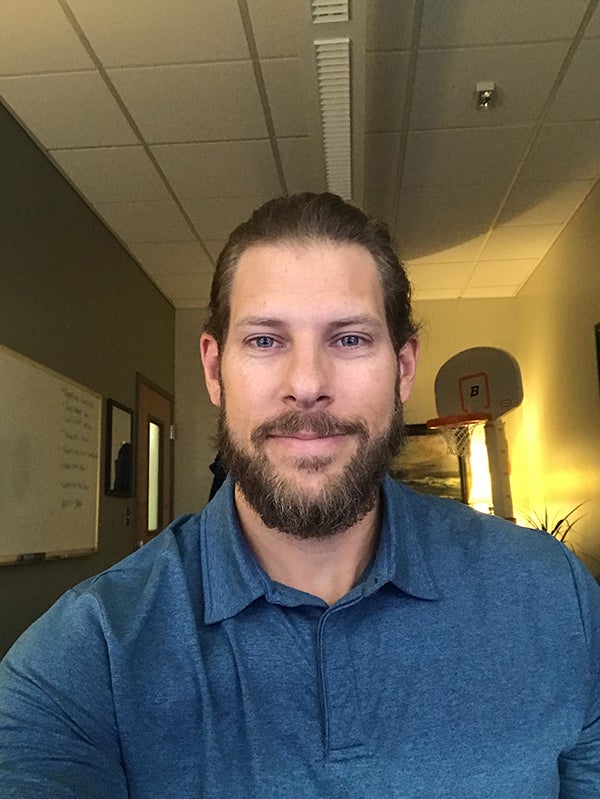
Since Matt Niece was a child, the one thing that has consistently brought him meaning and purpose is helping others.
This feeling followed him through adolescence and into adulthood during his undergraduate studies when he saw a presentation by Dr. Judith Crews, a professor and long time mental health clinician, about counseling as a profession and he was profoundly inspired by the idea.
“Dr. Crews became a mentor and to this day is one of my closest friends.”
Fast forward to today, and Matt has grown into his role at Boise State as the Director of Counseling Services—and he’s on a mission to break the stigma of mental health, spread positive information about counseling, and help as many people within the Boise State community as possible.
In his everyday, Matt coordinates the ongoings of Counseling Services, but he’s also working toward bigger picture developments within counseling. Something he always has in mind when meeting with students and staff is a goal to change people’s minds about what counseling is, what it stands for, and who it can help. He wants the team to be seen as a trusted, go-to resource that serves all people.
It’s a fear of judgement, comparing our problems to other people, and perceived weakness that stops many of us from seeking mental health help. But Matt wants people to know that Counseling Services sees every person as an individual with valid struggles which deserve care and attention.
“One of the most common statements I hear from students is that their problems aren’t as important as others because they don’t seem severe and traumatizing. I tell these folks that every issue and experience is unique to the individual and that weighing one person’s problems against another is natural, but unhelpful. Counselors meet every client where they are at emotionally, and always value their personal experience.”
For Matt, counseling and mental health is not a sometimes priority. He sees mental health check ups as just as important as seeing a doctor or dentist. Certainly, most of us can relate to the feeling of waking up one day with simply too much on our plate to handle. Maybe we missed the signs that things were piling up. Maybe the idea of addressing things head on, one issue at a time, understandably felt a bit too scary. But now, it’s overwhelming and we don’t know who to turn to.
And particularly now, during suicide awareness month (or Yellow September as it’s commonly referred to), it’s important to stay aware of our mental wellness.
“A lot of us wait until a problem has become all-consuming before we ask for help. I’d love for our students to proactively get out ahead of these concerns, connect with a counselor routinely, and prioritize their mental health and wellness to have a solid foundation.”
Meeting with a counselor regularly can help prioritize problems into bite-size, manageable pieces and can desensitize students to the idea that they have to be able to do it all. Asking for help does not equal a lack of success. There is so much that can be learned, so much growth that can happen from going through difficult times, especially like the strange times students find themselves currently navigating.
“My wish for student’s mental health is a continued focus on leaning into discomfort, giving one’s self the freedom to ‘fail,’ never losing sight of one’s inherent strength, and a commitment to, despite all that is happening in our world, empathy and compassion for one another.”